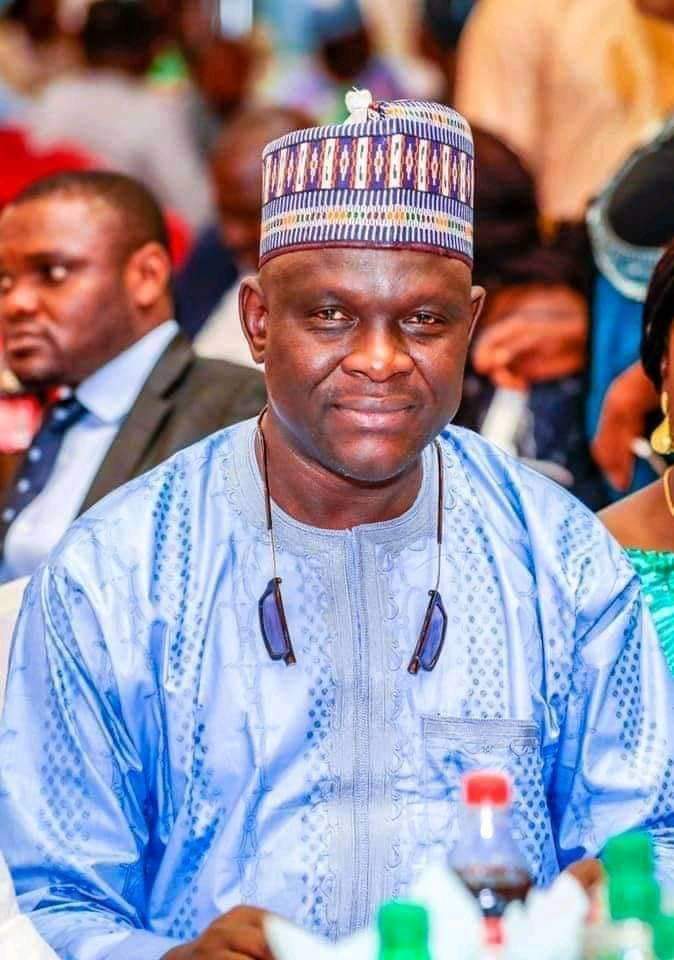By Othuke Evroh
Ankara will no longer borrow money from the International Monetary Fund(IMF), declared Recep Tayyip Erdogan, the Turkish President.
”We undertook a debt of $23.5 billion when we took office. We paid off the debt in 2013. Aren’t we the ones who saved this country from the IMF yoke?” the President declared to his critics.
”Turkey’s economic indicators are at a very good level compared to other countries”, Erdogan this time told his AK Party in October, 2018, adding that the IMF chapter in the country has been closed for good.
In a similar vein, many pundits in Turkey and abroad in 2020 argued that the major impediment of IMF loan to President Erdogan is IMF conditionality and its tendencies to weaken Turkey’s near fragile economy.
These powerful statements by the Turkish strongman lays credence to the new school of thought that has emerged in the African continent in the last two decades. This school of thought believes that the prescribed conditionalities and structural reforms imposed on IMF debtors do not only favour the IMF in the long run, but most significantly, destroy the economies of the debtor countries.
As such, it came as no surprise, particularly to the writer and the above mentioned school of thought that while the dust raised by the controversial $150 billion Samoa loan agreement between the EU and Nigeria is yet to settle, a US based expert, Bradley Rohrs, President of Rohrs Team, a US-based real estate consulting firm, in his comment titled, ”US-based expert exposes hidden dangers in Nigeria’s latest $2.5bn IMF loan”, published by the Nigerian Tribune of July 15, highlighted the dangers of the $2.5 billion IMF loan to Nigeria’s economy.
This was sequel to Wale Edun’s revelation at the annual meetings of the IMF and World Bank Group on April 20 this year. Mr. Wale Edun, Minister of Finance and Coordinating Minister of the Economy of Nigeria while speaking at the annual meetings, stated that the $2.5 billion loan avails a 40-year tenure, a 10-year moratorium and 1 percent interest rate. The Minister further asserted that given the loan’s conditions, it is somewhat free.
”It is virtually a grant. It is about 40 years, 10 years moratorium and about one percent interest. That also is part of the flow that you can count”, the Minister declared.
Though this concessionary loan of 1% interest rate and a moratorium of 10 years over a 40 years tenure, seemed to suggest ”smart borrowing”, Bradley Rohrs successfully revealed that Nigeria would not only be engulfed in a web of serious economic predicaments from 2034 owing to the consistent depreciation of the naira when repayment for the said loan commences, but will also end up repaying an outrageous amount of $30 billion.
According to Rohrs, the terms and conditions of the loan will obviously ”contribute to the long-term insolvency of the country”. ”The loan needs to be paid back in Western currencies, and the naira is losing significant value every year, meaning this loan is going to end up costing tens of billions of dollars to Nigeria within a decade.
Rohrs also commented that the naira had depreciated by 50 percent in the past year, meaning that the interest would as such be 51 percent, that is, 1 percent plus depreciation of the naira. As such, Nigeria will definitely spend more both on interest and principal.
”This is an economy-destroying debt obligation”, he complained and continued, ”Of course, because payments do not start until 2034, when all the current politicians will be long gone when the loan comes due. I can understand why this was a tempting loan to take, but let us say the naira depreciation is only 10 percent per year, which is very generous. Even in the best-case scenario, that means by 2034, the principal of this loan will effectively grow from $2.5 billion to $7 billion. The payments will then be the equivalent of a billion dollars a year and continue for 30 years. So, for $2.5 billion today, Nigeria is agreeing to pay the Western banks $30 billion under a 10 percent inflation rate”.
According to Rohrs, this loan comes with other concessions including removing subsidies on Oil and Electricity and establishing reforms to make it easier for Western banks to compete with Nigerian domestic banks.
Consequently, I am of the conviction that yet again, just like the many other loans availed Nigeria by the EU, the IMF and the World Bank, this 2.5 billion dollar loan from the IMF does not only seem to represent what some analysts have termed ”The devil is in the details”, but is also aimed at impoverishing the the mass of resilient Nigerians.
The IMF and the World Bank for the umpteenth time, have displayed wanton deficits in integrity and credibility. These two institutions have also shown that they can not be trusted in their core mandates when it concerns Nigeria and the entire African continent. The negative consequences of their nefarious financial cooperation and economic reforms or structural programmes are replete in many African countries, including Nigeria. Just like the United States and the EU, the IMF and the World Bank have, in the guise of democracy, grants, aid and loans, among others, treacherously and minaciously interfered unimaginably, in the political, social, economic and cultural existence of many African countries.
In Uganda, President Yoweri Museveni can no longer get funds from the EU, IMF and World Bank to service the largest refugee camp in Africa because he signed the anti-LGBTQ+ bill into law. In March this year, the Egyptian central bank devalued its currency and removed fuel subsidies among others, as a condition to expand its IMF loan to $8 billion. This move is currently causing untold hardships in Egypt.
Similarly, President Nana Akufo-Addo of Ghana is at the verge of losing $3.8 billion World Bank funding over the next five years if he signs the anti-LGBTQ+ bill into law. Also remember that former President Goodluck Jonathan in his book titled, ”Against the Run of Play”, stated that he lost the 2015 Presidential election partially because of the unjust conspiracy led by ex-President Barack Obama of the United States, the former Prime Minister of Britain, David Cameron and the former President of France, Francois Hollande in the international community.
It is worthy to note that the Nigerian economy started plummeting in 1986 following the implementation of the Structural Adjustment Programme(SAP), handed to the then junta government of Ibrahim Badamosi Babangiga by the IMF. Today as it were, the Nigerian economy is in shambles. With little or nothing to be desired following the removal of fuel subsidy and the floating of the naira by President Bola Ahmed Tinubu on the advice of the IMF and the West, Nigeria is creepingly becoming an organized chaos.
Nigerians are becoming very despondent over the many hardships unjustly inflicted on them as a result of the removal of fuel subsidies. As each day graduates to another, more and more hardworking Nigerians are being dragged into the already gargantuous poverty line. Yet, IMF has continued to prevail on the Tinubu’s led administration to tighten the noose around the necks of Nigerian, to eliminate electricity subsidy so as to contain debt vulnerability and pay back every loan acquired from the IMF, the World Bank and other Western nations, without recourse to the overall wellbeing, progress, growth and development of Nigeria and Nigerians.
Just yesterday, NECA, MAN and NACCIMA at the 67th Annual General Meeting in Lagos, declared that the policies of the Tinubu’s led government are crippling businesses.
Currently the new electricity tariffs are gradually grounding tertiary institutions and other essential services in areas classified as ‘Band A’. The naira has depreciated to over N1,500 to a dollar in the parallel market, inflation rate has surged to 34.19% in the month of June, just as food inflation and transportation inflation are now over 40%. Nigerians are hungry and Nigeria has become a land of lamentations under the renewed hope mantra.
It is high time that President Bola Ahmed Tinubu got up from his slumber and steered Nigeria back on the path of economic prosperity. To do this, he must first and foremost muster the guts and temerity to call the bluffs of the IMF and its Western allies and implement the Nigerian people oriented policies and programmes. He should always remember that government exists to provide the good life. And for the IMF and its collaborators, I have but one thing to say, ‘Nigerians and indeed Africans are not unconscious of ”the devil is in the details”.





